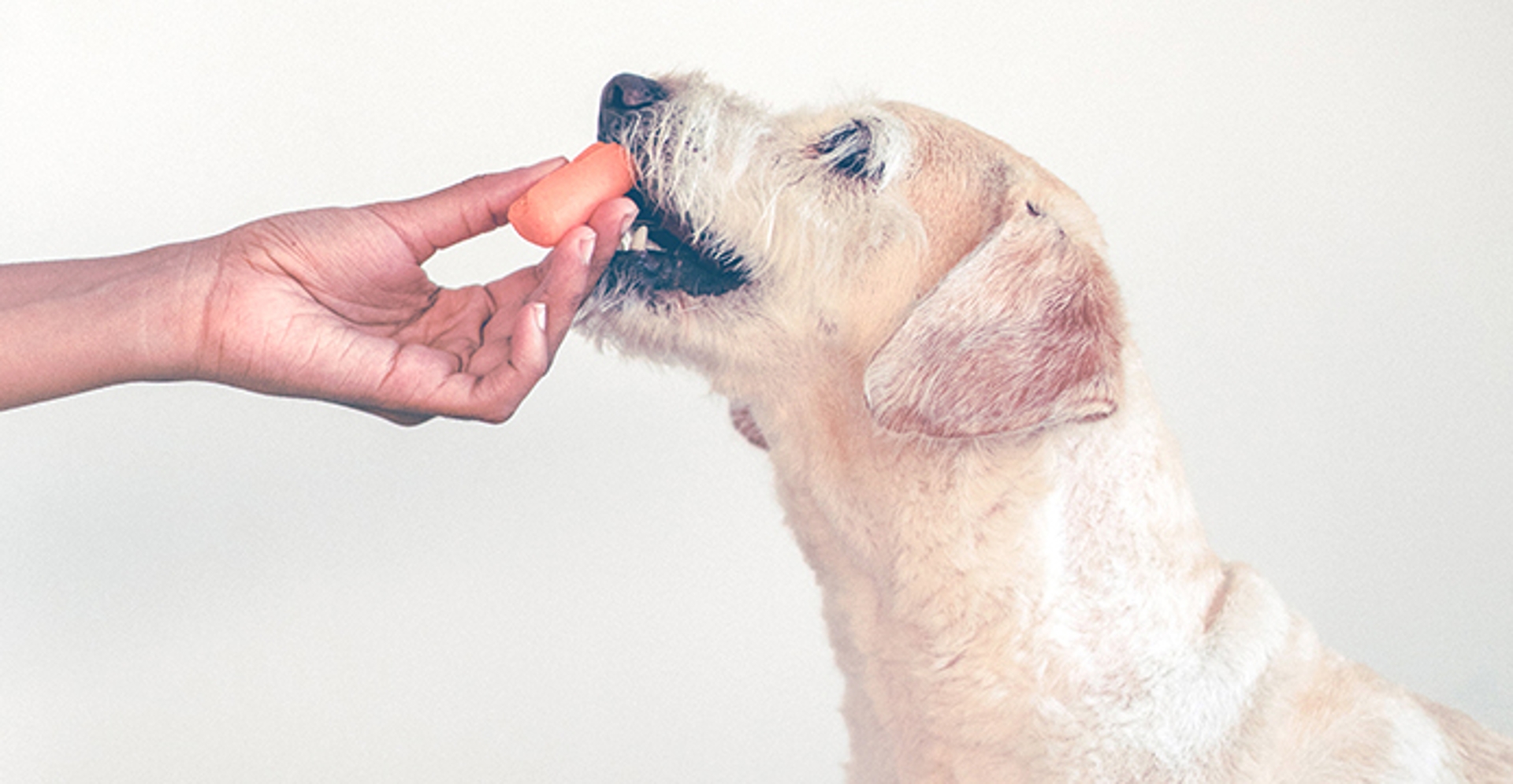28
Apr 2021
Pet parents love to spoil their fur babies. From getting them another toy even though they already have 20, to letting them take up half the bed when you’re asleep. And sharing your own food with them because they give you those puppy eyes you just can’t ignore. It’s important to know what is safe or not safe for pets to consume. What may be okay for us could be toxic to dogs and cats.
If you want to give your pet a nice snack aside from their usual food and treats, here’s a list of some fruits and vegetables that are safe and healthy for them to consume.
Fruits for Dogs:
Apples: provide vitamins A & C, fiber, and calcium. Low in calories and also helps keep their teeth clean and freshens their breath! Remove core and seeds - apple seeds contain cyanide.
Bananas: high in potassium, magnesium, fiber, and vitamins B6 & C.
Blueberries: low calorie, provide fiber and vitamins C & K, full of antioxidants.
Cantaloupe: low calorie, provide fiber, vitamins B6, A, & C, niacin, folate, and potassium. High water content makes it a tasty way to stay hydrated! Seeds are harmless but could still cause choking, so it’s best to remove the seeds.
Mango: high in fiber and vitamins A, B6, C & E. Peel and remove the pit.
Peaches: source of vitamin A and fiber. Flesh is safe in small, cut-up pieces.
Pears: provide vitamins A & C and fiber. Remove core and seeds! Pear seeds contain cyanide.
Pineapple: contains fiber, vitamins B6 & C, thiamin, riboflavin, niacin, and folate. Also full of minerals such as manganese, copper, potassium, magnesium, iron, and a small amount of calcium, phosphorus, and zinc, all great for immune and digestive health! Remove core and peel before serving.
Raspberries: low in sugar & calories, high in fiber, manganese, vitamins C, K, & B-complex, antioxidants, and minerals such as potassium, iron, and magnesium.
Strawberries: low calorie, high in fiber & vitamin C, full of antioxidants and can also help whiten their teeth.
Watermelon (seedless): low in calories, full of vitamins A, B6 & C, and potassium, great treat to help stay hydrated! Always remove seeds and rind before serving.
Fresh, raw fruit is best! Canned fruit in syrup contains too much sugar and just isn’t healthy. Antioxidants help fight free radicals which cause cellular & molecular damage in dogs & humans and can help fight against certain diseases.
Need some ideas on how to serve these tasty treats to your dog? Cut small pieces and freeze them. Your dog will love the frozen treat with summer’s hot weather! You can also mash the fresh fruit to make a puree and serve alone or mix with their regular food.
Vegetables for Dogs:
Broccoli: high in fiber & vitamin C, low in fat, can be served raw or cooked.
Brussels Sprouts: full of vitamins including A, B1, B6, C & K, fiber, and antioxidants. Serve steamed, boiled, or microwave them - they are too hard for your dog to digest if served raw.
Carrots: source of vitamin A, potassium, and fiber. Can be served raw & cooked; also large frozen carrots can be great chew toys that also help improve your dog’s dental health!
Celery: provides fiber, vitamins A, C & K, folate, potassium, and manganese, very low in fat & cholesterol. Can be a good treat for dogs with weight issues.
Cucumbers: source of vitamins C & K, potassium, and magnesium, high water content helps them stay hydrated, low in calories, sodium & fat. Can be a good treat for dogs with weight issues.
Green Beans: full of protein, iron, calcium, fiber, and vitamins A, B6, C & K. Can be served chopped, steamed, raw or canned as long as they are plain. Be sure that there is no added salt if serving canned beans.
Peas: great source of vitamins A, all the Bs & K, iron, zinc, potassium, magnesium, protein, fiber, and antioxidant. Green peas, snow peas & sugar snap peas are all safe served fresh, frozen, or thawed. No canned peas as they are usually full of added sodium! The pod is safe for dogs to eat, except for green peas - these MUST BE shelled! Do not feed to dogs that have kidney issues as peas contain purines that produce uric acid which is filtered through the kidneys - too much uric acid can lead to kidney problems!?
Pumpkin: rich in fiber, full of vitamins A, C & E, potassium, and iron - fresh & canned pumpkin are great, but canned pumpkin contains more fiber & nutrients, just make sure it’s plain!
Sweet Potatoes: provide fiber, vitamins A, B6 & C, calcium, potassium, and iron, low in fat. Always serve cooked and with the skin removed - it’s hard for them to digest the skin - never serve raw.
Zucchini: provide fiber, vitamins A, B, C & K, minerals including potassium & phosphorus, antioxidants, low in calories, fat & cholesterol. Can be a good treat for dogs with weight issues. Can be served raw, steamed or cooked.
Always serve veggies plain - no seasonings or oils. If you get canned veggies, make sure they are plain with no added salt!
There are also some fruits and veggies your cat can safely consume. Cats do not have taste receptors for sweetness, so they may not be interested in most of these anyway!
Fruits for Cats: Apples, Bananas, Blueberries, Cantaloupe, Strawberries, Watermelon (seedless)
Always cut into bite-size pieces and never serve the seeds, cores, or rinds!
Vegetables for Cats: Steamed Broccoli, Baked or Steamed Carrots (serve grated or finely chopped), Steamed Green Beans, Peas, Pumpkin, Baked or Steamed Zucchini (grated or finely chopped)
Always serve plain - never add seasonings or cook in oil, as many seasonings and spices are not safe for cats to consume.
Remember, always cut the food into bite-size pieces and serve in moderation, just like regular treats. Too much can cause pets to have an upset stomach, especially if they haven’t eaten it before. Make sure the food is prepared properly and consider your pet’s individual dietary needs before you give them something other than their normal food & treats. For example, if your pet has diabetes, it may not be a great idea to feed them fruits that have a high sugar content, even in small portions. Always consult your vet if you have any questions about what is safe for your pet to consume, and never feed pets people food without properly researching ahead of time whether it is safe.






